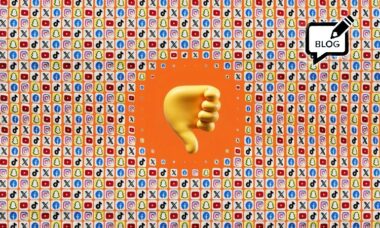 If you get paid for increasing sales of a product, you’re promoting that product. That seems like a simple enough concept, yet it’s one that, according to the UK’s Advertising Standards Authority (ASA), influencers and companies still struggle to grasp.
If you get paid for increasing sales of a product, you’re promoting that product. That seems like a simple enough concept, yet it’s one that, according to the UK’s Advertising Standards Authority (ASA), influencers and companies still struggle to grasp.
The latest up in front of the firing line was Supreme CBD, which saw what used to be called tweets but are now called perhaps Xs, given the platform’s name change, from three accounts called out by complainants as well as the ASA.
The tweets – sorry, Xs – posted a year ago variously used commission discount codes and made potential health claims. Outside the usual criticism that a year is an aeon in social media terms and a directive on these issues so long after the initial posts is effectively useless, the cases look to be open and shut.
The influencers who ran two of the accounts acknowledged that they received commission from the discount codes provided by Supreme CBD but that because they only had a verbal agreement with the company, and Supreme had no oversight, they did not consider posts involving Supreme CBD to be ads.
Though one did also mention that he had literally been requested to film a small number of short videos to be embedded into content posted on his pages. If that’s not an ad, it’s certainly splitting hairs over the definition.
Make a note to avoid medical claims as well as advertising
On the medical claims, the posters could perhaps be forgiven. They said they had personally used CBD to help with anxiety or sleep, and one said he did not realise referring to personal experience or feedback he received from others would be unacceptable and considered making a medical claim.
The third account pulled up in the ASA ruling also made medical claims, and in that case, the poster really should have known better, as it came from the account of Supreme CBD founder Anthony Fowler. In his defence, the claim was very indirect.
Fowler only affirmatively replied to someone asking if CBD products worked for anxiety and insomnia, and he directed them to positive comments on the subject in one of the influencers’ posts.
He was also knocked for not clearly identifying posts on X promoting Supreme CBD as adverts. But, again, in that case he could potentially be forgiven for thinking he did not have to specifically mark products talking about his own personal brand as ads if not making a clear promotional call to action.
So, overall, this latest ruling adds what seems like obvious detail to the kinds of social media posts that should be labelled as adverts. Simply put, if you get paid for sales off the back of it, it’s an ad. Label it as such.
It also provides some less-obvious detail: if you own a brand and a social media post even indirectly promotes it by referring to other promotional posts, it should be labelled as an advertisement.
Also, don’t make medical claims. It won’t get you anywhere.
– Freddie Dawson CannIntelligence staff
Image: Igor Omilaev







